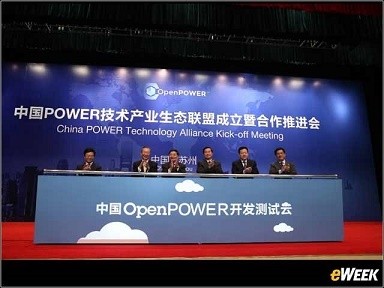International technology companies are forging closer ties with Chinese firms in a bid to strengthen their position in the country's market, the Economic Observer reported.
One of these Chinese companies includes Zoom Netcom, which launched on June 10, in Beijing, a new line of servers called RedPower, the first product developed with IBM's Power chip and designed for the Chinese market.
Zoom Netcom is a member of IBM's OpenPOWER program, composed of more than 20 members, which was set up in Dec. 2013 with Google and Nvidia. The other members of the OpenPOWER Foundation include Tsinghua University, Jiaotong University and Suzhou PowerCore Technology.
The report said that Zoom Netcom has now collaborated with the Ministry of Industry and Information Technology to establish a partnership based in Suzhou.
An IBM official, however, said that despite the development of a powerful processor called Power, the servers that carry the chip are too expensive for the market.
Through the OpenPOWER Foundation, IBM and several companies, including Zoom Netcom, managed to jointly develop RedPower, a more affordable server that can utilize the processing ability of the Power chip, the report said.
The report also cited Hewlett-Packard (HP) as another firm seeking to bolster its position in China by forming closer ties with local companies. HP and Tsinghua University's corporate arm had announced a joint venture deal in late May, which involved computer servers, storage and technology services. Under the agreement, Tsinghua Holding's Unispledour will have a 51-percent stake in a new company called H3C, giving them power over HP's servers, storage and technology services in China.
HP CEO Meg Whitman said during the signing that the new H3C will be able to drive even greater innovation for the country.
The deal was announced after HP's sales and net profits have reportedly declined, as the quarterly results released in February showed.
According to the report, H3C, now considered a Chinese company, will also help HP sidestep a government regulation that requires security certification for tech products bought from foreign companies by state agencies.
China is considered by several tech giants as a place for opportunity, where they can reboot their business and they prefer to cooperate rather than compete in the market to preserve their future, the report said.
"We cannot just do things on our own and involve nobody else," Intel China president Ian Yang said.
Currently, Intel is working with Fuzhou Rockchip Electronics to develop a cheaper processor for tablets, as well as an expansion into the market of the Internet of Things and mobile devices.



























